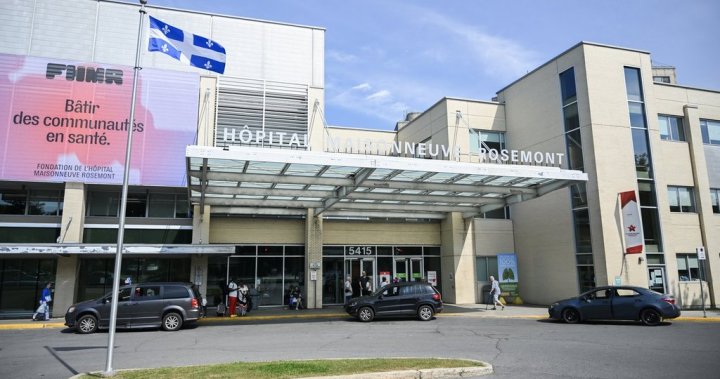The Quebec government has greenlit a substantial funding package for the long-awaited modernization of Montreal’s Maisonneuve-Rosemont Hospital, marking a pivotal moment in the province’s healthcare infrastructure renewal efforts. The announcement, made Thursday by Quebec Health Minister Christian Dubé, commits an additional $4.2 billion to completely rebuild the aging east-end Montreal medical center, bringing the total project investment to $6.7 billion.
“This is more than just a renovation—it’s a complete transformation of healthcare delivery for east Montreal,” Dubé stated during the press conference at the hospital campus. “The facility has served Quebecers faithfully for decades, but its infrastructure can no longer meet modern healthcare demands.”
The Maisonneuve-Rosemont Hospital, which opened its doors in 1954, has struggled with deteriorating conditions that have compromised both patient care and staff working environments. Recent inspections revealed structural issues, outdated medical systems, and spaces that no longer comply with contemporary healthcare standards.
The ambitious reconstruction project will unfold in phases, with completion anticipated by 2035. According to government officials, the renovated facility will feature significantly expanded capacity, with the number of beds increasing from 544 to 720. Additionally, the percentage of single-occupancy rooms will rise dramatically from the current 15% to 80% upon completion—a change that healthcare experts say will improve infection control and patient privacy.
Premier François Legault, who joined Dubé for the announcement, emphasized that the project represents the largest hospital investment in Quebec’s history. “When we make promises, we keep them,” Legault said. “This investment demonstrates our government’s commitment to ensuring Quebecers have access to world-class healthcare facilities.”
The reconstruction plan has evolved substantially since its initial conception. The government’s previous approach involved a partial renovation estimated at $2.5 billion. However, after comprehensive assessments revealed more extensive structural problems than initially anticipated, officials opted for a complete rebuild strategy.
Montreal Mayor Valérie Plante welcomed the announcement, highlighting the hospital’s critical role in serving the eastern portion of the city. “Maisonneuve-Rosemont is an essential institution for east-end residents,” Plante remarked. “This reconstruction ensures continuity of care while creating a facility that meets modern healthcare needs.”
Healthcare workers at the facility expressed relief at the news. Dr. François Marquis, chief of intensive care at Maisonneuve-Rosemont, described working conditions that have become increasingly challenging due to the aging infrastructure. “We’ve been dealing with flooding issues, electrical problems, and spaces that weren’t designed for modern medical equipment,” he explained. “This rebuild means we can finally focus on patient care without constantly battling facility limitations.”
The reconstruction project extends beyond mere building upgrades. The plan includes implementing advanced medical technologies, creating specialized care units, and designing spaces that promote healing environments. Environmental sustainability features are also integrated into the design, with energy-efficient systems expected to significantly reduce the facility’s carbon footprint.
Critics, however, have raised concerns about potential disruptions to patient care during the extensive construction period. Opposition health critic André Fortin questioned whether sufficient interim measures have been established to maintain service quality during the decade-long project. “While we support the investment, we need assurances that east Montreal residents won’t face reduced access to healthcare throughout this extended construction timeline,” Fortin stated.
The Maisonneuve-Rosemont investment is part of a broader provincial strategy to modernize Quebec’s healthcare infrastructure. Similar projects are underway at Montreal’s Sacré-Cœur Hospital and the Lachine Hospital, though at smaller scales. These initiatives align with Quebec’s post-pandemic healthcare reform agenda, which seeks to address systemic weaknesses exposed during the COVID-19 crisis.
As Quebec continues navigating healthcare challenges, including persistent
























